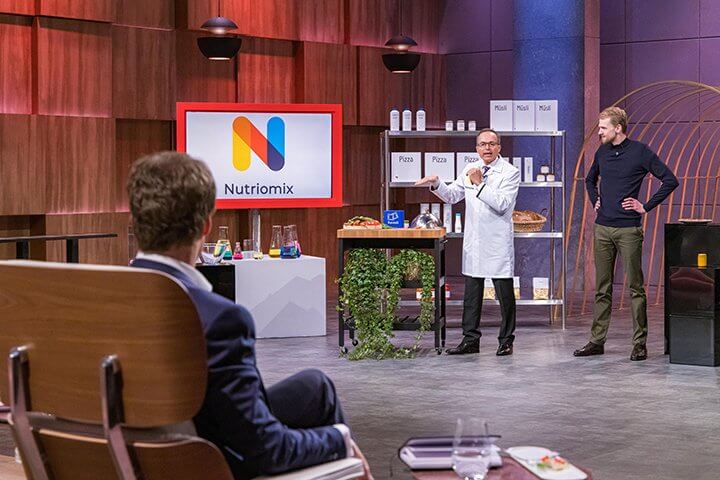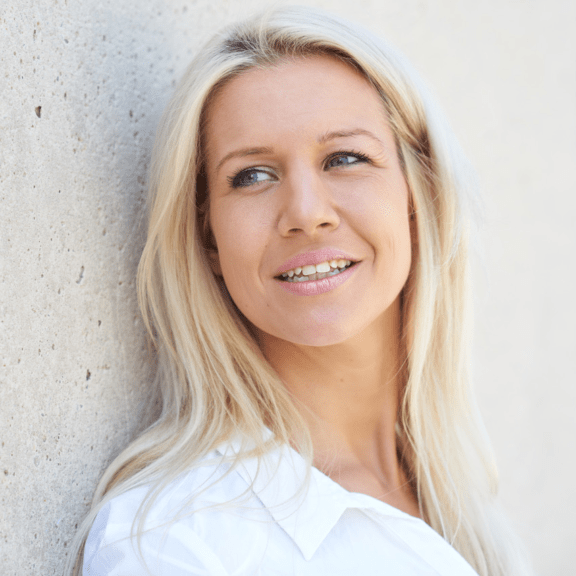Nutriomix: Have they done the maths without the (end) customers? #DHDL
A complete investor pitch always includes a market slide. In "Die Höhle der Löwen", however, the market section is not part of the pitch, but has to be asked by the lions afterwards. In the case of Nutriomix, viewers were given a pretty good insight into an exciting industry. Food retail in a nutshell, so to speak.
Mittwoch,
24.04.2024

The two founders of Nutriomix must have had a slightly different idea, as they brought together two areas of expertise to turn an entire industry upside down. 25 years of research into which nutrients and combinations make cells live longer meet a specially developed algorithm that can use this knowledge to make any recipe much healthier.
They offer this to food manufacturers, who are supposed to use it to significantly improve their products for the benefit of their customers.
However, they also wanted to be paid accordingly by the lions: 500,000 euros for 5% was their deal proposal, which corresponds to a valuation of a whopping 10 million euros. And without any concrete turnover.
What seems incredibly high at first glance is not so unimaginable, even in times of declining startup valuations, if it is a very scalable model that can really shake up an industry and could very quickly lead to very high early sales.
The first point seems to be fulfilled by the fact that it is practically software that can improve any dish at the touch of a button. However, we later learn that the „new“ recipe determined in this way is usually first sent to the food manufacturer’s experts, who test it for flavour and composition. There may then be corresponding change requests, and ingredients added by the algorithm have to be removed and replaced by others. So there may well be several iterations and it is actually logical that such a manufacturer would not easily change a dish that has been tried and tested on the market for a long time. Even if it then becomes many times healthier. So it doesn’t seem to happen quite so automatically after all, and such major customers normally require appropriate support.
However, if you look at point two – the potential for disruption and revenue – it could actually be worthwhile.
Nutriomix states that it is already in talks with three manufacturers and wants to agree revenue shares with them. All three have offered stakes of between 10 and 20%, which immediately triggers strong reactions among the lions.
Food expert Tillmann Schulz immediately interjects that the price of a cheap frozen pizza, for example, would not allow for this. Trade lion Ralf Dümmel adds that the founders‘ argument is that this pizza could be sold for €2.49 instead of just €1.99 in future, for example. Founder Christoph had previously made the comparison with gluten-free foods, which are considerably more expensive than normal foods.
But it is precisely this thesis that all the lions doubt. This is because it presupposes that a large number of end consumers are prepared to spend more money on healthier food. Of course it works in certain areas, but Nutriomix is not a food manufacturer in a certain segment, but wants to work with the big food companies. And then the question arises as to what makes their customers tick.
Tillmann Schulz doubts that the masses seriously want healthier food and has recognised from the sales figures of the products he sells that the current trend is towards cheaper variants. According to his findings, only a few people are prepared to pay premium prices for premium food.
And if you look at the market and the mass of cheap, but completely over-sugared and chemically flavour-manipulated foods, his doubts cannot be dismissed out of hand.
The Nutriomix founders have probably experienced what often happens with start-ups: They have accepted their thesis as truth too quickly. The good initial feedback from the food manufacturers they speak to may well have contributed to this. Unfortunately, the viewers don’t learn anything more about them, for example how big they are or how far the discussions have progressed.
Perhaps the lions have an information advantage here, because they don’t seem to believe in the 10-20% revenue share promised to the start-up. They hold on to their market knowledge, and this clearly speaks to a highly competitive market in which end consumers shop primarily on price and taste, which means small margins for manufacturers and strongly favours the use of cheap raw materials that are, however, strong flavour carriers (sugar, fat, salt, flavour enhancers). Even if this is, of course, the opposite of life-prolonging.
This structure or key drivers of a market – together with the usual margins – are what founders inside and outside the cave need to realise. Because only if you really understand the current market can you really shake it up.
At the end, Ralf Dümmel will point out that manufacturers often don’t even have a 20% margin when they supply the big players in the market. So even if they were to increase their prices, they would run the risk of having hardly any more or even less margin than before if they agreed to work with such a startup – not to mention the threat of losing customers with any kind of change to an existing product.
In the end, all the lions drop out because they don’t believe in the founders‘ vision, even if some of them affirm that they would like the concept to succeed anyway.
In fact, the conclusion of this pitch is a rather depressing one: Customers don’t always do what’s good for them. No matter how useful, healthy or life-enhancing – perhaps even life-prolonging – a product is, whether the customer actually buys it depends on a number of other factors. Only when you have fully understood these – and ideally their interactions – can you really shake up a market. This is not always possible.
Photo (above): TVNOW / Bernd-Michael Maurer

Ruth Cremer
Ruth Cremer ist Mathematikerin und Beraterin sowie Hochschuldozentin auf dem Gebiet der Geschäftsmodelle, Kennzahlen und Finanzplanung. Als ehemalige Investmentmanagerin weiß sie, worauf Investoren achten und hilft auch bei der Pitch- und Dokumentenerstellung im Investitions- oder Übernahmeprozess. Seit 2017 ist sie als externe Beraterin an der Auswahl und Vorbereitung der Kandidaten in "Die Höhle der Löwen" beteiligt.
